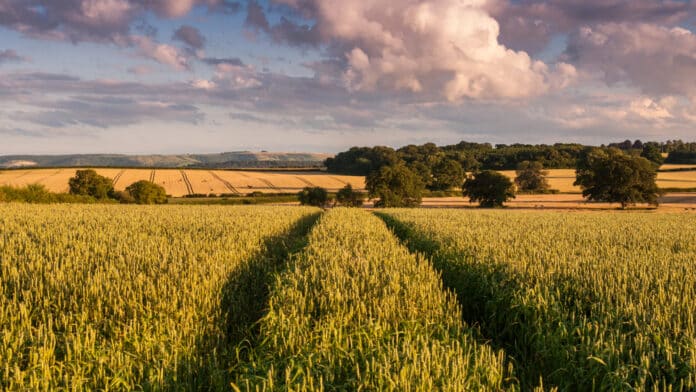The transition from the EU’s Basic Payment Scheme is likely to result in a big loss to the Dorset economy, says NFU county advisor Gemma Harvey.
According to Defra’s Agricultural Price Index, the cost of fertiliser more than doubled between March 2021 and March 2022, with ‘red’ diesel used on farms going up by almost a half in the same period.
These rising costs and simultaneously reducing support payments mean the situation is growing increasingly difficult for many farmers. But in order to deliver socially, economically and environmentally, Dorset’s farms need to remain financially resilient, profitable and productive.
The rising costs are happening against the backdrop of agricultural transition, as we develop our own policy after years of being part of the EU’s Common Agricultural Policy. A key part of this transition is a move away from direct payments, in the form of the Basic Payment Scheme (BPS), towards a system of payments for ‘public goods’, such as environmental outcomes and benefits.
A loss to the county
Research commissioned by the Great South West Local Enterprise Partnerships (LEPs) and the NFU shows that Dorset is due to lose tens of millions of pounds as a result of this. In 2020 Dorset received £38.3m in BPS payments. Payment reductions will be incremental over the course of the transition period (between 2021 and 2027). By the end of 2027 the total BPS amount lost from the rural economy of the county will be £33.5m.
A suitable replacement
There is no single replacement for these payments. Farmers will be able to apply for environmental stewardship agreements, the main one being the Sustainable Farming Incentive (SFI), due to open for applications at the end of June 2022. Many farmers and growers may also be eligible for some funding towards productivity schemes. Although still being developed, as things stand the SFI will fall far short of replacing what is lost by the phasing out of the BPS. The report suggests that SFI payments will only deliver 10 to 30 per cent of the lost BPS by 2028.
UK food production
The recent publication of the government food strategy, which follows the independent review of the food system carried out by Henry Dimbleby in 2021. The strategy sets out the government’s policy initiatives, taking into consideration the more recent challenges posed by the war in Ukraine and the impact of the Covid-19 pandemic on the global economy.
The strategy issues a clear statement of governmental support for domestic food production, maintaining our productive capacity and growing more food in this country in order to address the mounting concerns around food security.
The NFU believes that domestic food production and environmental delivery go hand in hand. We are proud that British farmers have an ambition to reach net zero by 2040, while still maintaining current levels of food production.
Join us in helping to bring reality and decency back by SUBSCRIBING to our Youtube channel: https://www.youtube.com/channel/UCQ1Ll1ylCg8U19AhNl-NoTg
and SUPPORTING US where you can: Award Winning Independent Citizen Media Needs Your Help. PLEASE SUPPORT US FOR JUST £2 A MONTH https://dorseteye.com/donate/







